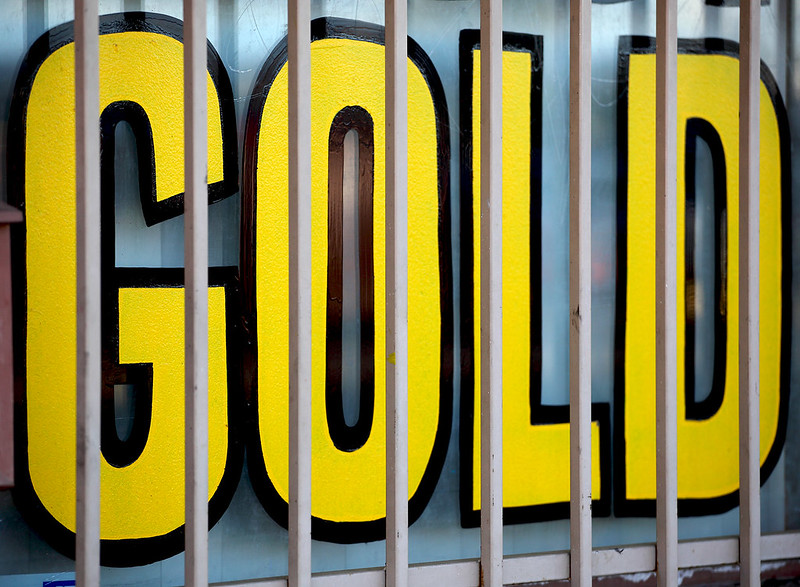Pawn shops are a convenient option for turning your valuable possessions into fast cash. Whether you’re in a financial bind or just looking to clear out some unused items, these shops offer an easy way to get cash in hand. However, not all items hold the same value at pawn shops. Understanding what these businesses look for can help you maximize your earnings. In this guide, we’ll discuss the top items pawn shops accept, with a focus on gold, silver, and other high-value goods.
Why Gold is a Top Choice for Pawn Shops: What You Should Know
Gold remains one of the most popular items accepted at pawn shops. Due to its inherent value, it’s a reliable and widely recognized asset. Pawn shops know that gold retains value even during economic downturns, making it a preferred choice for both the shop and the seller. Moreover, the price of gold is often on the rise, making it a lucrative option if you’re looking to pawn or sell your valuables.
Pawn shops accept gold in various forms, such as jewelry, coins, bars, and even broken pieces. You don’t need to have a pristine gold item for it to hold value. Even if the piece is damaged or out of style, its gold content still has worth. The higher the purity of the gold, the more cash you can expect. Most pawn shops assess gold based on its karat rating—24k being pure gold—along with its weight.
Because of gold’s universal appeal, you can usually negotiate a fair price. However, doing some research on the current market value of gold can give you leverage when discussing the offer. Pawn shops often evaluate gold using current market rates, so knowing these figures allows you to make more informed decisions.
The value of silver fluctuates with the market, much like gold. However, it is generally more affordable, making it a good option for those who have large amounts or unique items. For example, vintage silver coins or antique silverware often fetch a higher price due to their rarity and historical significance. Pawn shops often consider both the weight and purity of the silver when offering cash.
It’s important to note that silver’s resale value might depend on its condition. Tarnished silver or pieces that have been significantly worn may not bring in as much as items in better shape. That said, even damaged or less polished silver can still be valuable because pawn shops focus on the metal content, not just appearance. If you have large quantities of silver or unique pieces, it may be worth your time to get an appraisal before heading to the pawn shop.

Can You Pawn Silver for Cash? Understanding Its Value
Yes, silver is another highly desirable item at pawn shops. While it may not carry the same high price tag as gold, silver still holds significant value, especially in larger quantities. Like gold, silver can be pawned in various forms—jewelry, coins, silverware, and even bars. Sterling silver, which is 92.5% pure silver, tends to bring in more money than lower purity forms.
Best Items to Pawn: How to Maximize Your Cash at the Pawn Shop
While gold and silver remain top choices, they aren’t the only valuable items pawn shops accept. If you’re looking to maximize your cash, consider bringing in high-demand items such as electronics, luxury watches, musical instruments, and even designer handbags.
Electronics like laptops, smartphones, tablets, and gaming consoles tend to fetch good money, especially if they are newer models and in excellent condition. Ensure you bring all accessories, including chargers, to increase the item’s value.
Luxury watches are another high-ticket item. Brands such as Rolex, Omega, and Tag Heuer hold their value well, and pawn shops often pay a premium for these. As with gold and silver, having documentation or certificates of authenticity can help secure a better offer.
Musical instruments also hold strong resale value, especially well-known brands like Gibson guitars or Steinway pianos. If your instrument is in good condition and well-maintained, it can bring in a substantial amount of cash.
Designer handbags, particularly from brands like Louis Vuitton, Chanel, and Gucci, have a thriving resale market, making them a popular choice for pawn shops. These items must be in excellent condition and come with proof of authenticity to secure the best possible price.
To get the most out of pawning any item, remember to clean and prepare your valuables before heading to the shop. Presentation matters, and it can make a significant difference in the amount offered. Also, be realistic about the condition of your items, as wear and tear may affect their value.
Pawn shops offer a quick and convenient way to convert valuables into cash, but understanding what they take and how to present your items can make a big difference in how much money you walk away with. Gold, silver, and high-demand items like electronics and luxury goods are some of the most profitable options. By researching current market values and preparing your items well, you can maximize the cash you receive. Whether you’re pawning or selling outright, knowing what pawn shops accept puts you in a stronger position to negotiate the best deal.